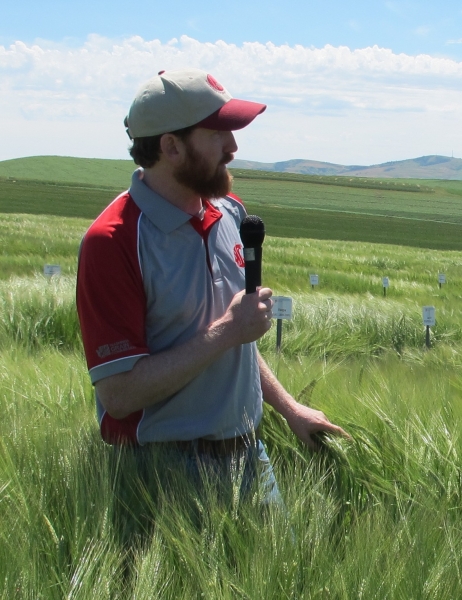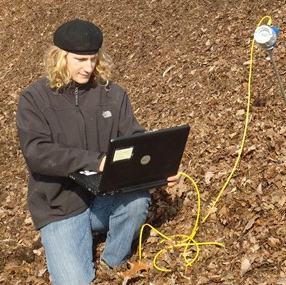Small grain
Organic Food Barley: Developing Nutritious and Delicious Varieties for the Pacific Northwest
 Researchers from Washington State University have been breeding and selecting hulless food barley types for almost a decade with the goal of releasing high yielding, nutritious barley varieties in this novel market class. Now in the final stages of this project, they will work to identify the advanced breeding lines most adapted to organic farmers in Washington State and Northern Idaho. In addition, the researchers propose to develop a truly comprehensive nutritional evaluation and a flavor profile of
Researchers from Washington State University have been breeding and selecting hulless food barley types for almost a decade with the goal of releasing high yielding, nutritious barley varieties in this novel market class. Now in the final stages of this project, they will work to identify the advanced breeding lines most adapted to organic farmers in Washington State and Northern Idaho. In addition, the researchers propose to develop a truly comprehensive nutritional evaluation and a flavor profile of
Deploying microbes as a seed treatment for protection against soil-borne plant pathogens
 Plant diseases, especially those caused by soil-borne seed infecting pathogens, pose a serious threat to the production of both greenhouse and field crops. Conventional farming operations often use fumigants and chemical seed treatments, which can be harmful to human health and the environment, for controlling seed and seedling pathogens.
Plant diseases, especially those caused by soil-borne seed infecting pathogens, pose a serious threat to the production of both greenhouse and field crops. Conventional farming operations often use fumigants and chemical seed treatments, which can be harmful to human health and the environment, for controlling seed and seedling pathogens.Study Helps Steer Organic Rice Producers to New & Effective Fertilizers
Summary
Project title: Evaluation of alternative nitrogen sources for California rice systems
Investigator: Bruce Linquist, Dept. of Plant Sciences, University of California, Davis, CA
Project location: Sacramento Valley, California
Biological mediation of apple replant disease in organic apple orchards
Summary
Investigator: Lori Hoagland, Washington State University, Pullman, WA
Project location: Eastern Washington state
Investigating the use of buckwheat strips to attract beneficial insects for the management of Colorado potato beetle
Summary
Investigator: Robert Hadad, Cornell Regional Vegetable Program, Lockport, NY
Project location: Four organic farms in upstate New York
Enhancing insect pest management in organic systems using genotypically diverse cultivar mixtures
Summary
Coordinator: John Tooker, Pennsylvania State University
Project location: Russel Larson Agricultural Research Center, Rock Springs, PA
Farmer-based evolutionary participatory plant breeding for organic quinoa, buckwheat, and spelt
The purpose of this project was to identify varieties of quinoa, buckwheat and spelt optimally adapted to organic farming systems in Washington State. Quinoa varieties have been identified that perform well in both Eastern and Western Washington. The multi-location quinoa variety trials have led to the establishment of a robust organic quinoa breeding and agronomy program, with multiple students incorporating genetic, agroecological and social aspects into their research.
Organic cover crop seed production as a sustainable enterprise for the Southeast
Summary
Investigator: Ray Hicks, University of Georgia, Screven County Cooperative Extension, Sylvania, Georgia
Project location: Screven County, East Central Georgia


